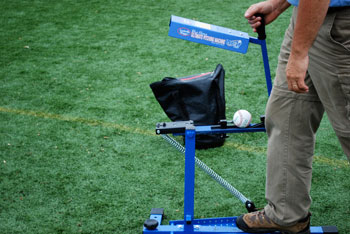

If someone could offer to train me to hear That, I’d pay good money for it.What did world renowned musicians like Mozart, Bach, Beethoven, and Liszt have in common? MUCH harder to hear for the western trained ear is Easter European and or African quarter tone scales. Also NB this is all and only for western music and half tone scales. There should be theory, notation and a pitch finding function in the app for that price. I’m happy to concede the point if you can explain.
#Absolute pitch trainer review software
(Not that programmers shouldn’t be paid but with a few well functioning apps and they can get a high paying software gig making more money than the best paid professional artists). I like this idea but I’m frankly annoyed by the cost. Maybe engineers, doctors and mechanics could do with perfect pitch but 1) they have machines for those diagnostics and 2) it’s an AMAZING mechanic who can diagnose an engine defect by sound. Three weeks of the subscription price would buy a pitch pipe as easily carry-able as a cell phone and without the problems of batteries running low.

I wonder if the price isn’t discouragingly high for someone NOT making money in some portion of the industry. While pitch memory is indispensable to a professional or ambitious amateur/ student. Good relative pitch would suffice in many instances. of course A as 440 is a 20th century construct versus a 380 A in say, Bach’s day. Being able to rely on yourself instead of available or non available musical instruments which may or may not be in tune. I like the idea of pitch memory rather than perfect pitch. I have my doctorate in music composition, so I think about this stuff a lot. I’ve already thought about having my students use it, as it is very simple but has many options for scales etc. The only way this could really be used for perfect pitch practice is to try at only the first pitch when you open the app, then put it away for 30 mins, listen to other stuff, then come back and try it again, over and over and over.įWIW, it IS still really great as an on-the-go ear training gismo. The main issue is that, once the user hears the first pitch of their practice session, the rest of the pitches from that point on are heard in relation to the first one - thus ‘relative’ pitch. Maybe it could work with regular, 30-min practice over many years, but the app isn’t robust enough to incite that sort of commitment out of it.Īs it is, it’s an excellent relative-pitch practice device. That said, this app doesn’t do that, at least not in its methodology. Like, daily 30-minute intent practice over 10 years. One of the main tenants of any practice of it, though, is constant, regular, long-form practice. But there is a decent amount of literature claiming otherwise, and at this point one could find there is a trope to learning it as an adult.
#Absolute pitch trainer review how to
I would so, so love a little mini tutorial of how to work the settings and other things like that little table of notes (idk what that does? I’ve messed around with it and saw no change, so I’m not sure if I’m getting what that does.) That way I could use this app even more to its potential! I would really recommend this for those learning music!įirst of all, many people debate whether perfect pitch can be learned after the age of about 6. When I checked the settings to see how I could configure the lesson/game, my eyes started to glaze over trying to understand what it meant. It’s a super simple game, and it’s a little repetitive, but personally I don’t find that a dealbreaker (heck, I can always take a break if it’s getting boring!) My only complaint is that I wish the settings were easier for my inexperienced self to understand. I saw tone recommended recently and figured there was nothing to lose and more to gain, so I downloaded it and was extremely pleased with the simple yet fun way the app helps you memorize notes and tone.

However as I have an interest in learning and playing piano, being able to pick out and identify specific notes as opposed to an ambiguous melody is a challenge without learning to identify the sounds and their placement by sheet.

Useful for those who play and learn by ear!Īs someone who has grown up around music but never had the focus to learn an instrument or sheet music, I’ve gotten by with more or less the guessing of notes and tone.


 0 kommentar(er)
0 kommentar(er)
